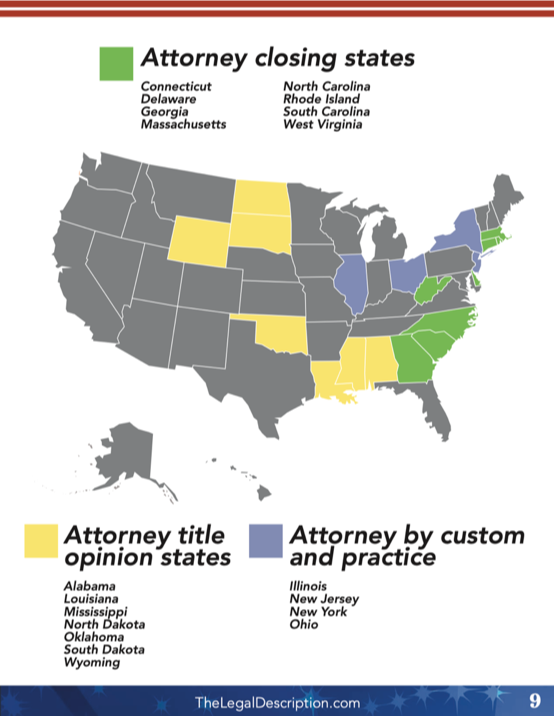A notable portion of real estate industry vets– agents or otherwise, report some form of legal background or experience. This trend appears to hold true across regions despite only some states requiring an attorney’s involvement in property transactions. October Research released a report this month endeavoring to provide clarity on which markets operate under such regulations, and what correlation these answers may have to the connection between real estate and the law.
 The report focuses on the remaining “attorney closing states,” which the report defines as any state where “Supreme Court order, Bar opinion or legislation, require[s] an attorney to supervise real estate transactions.” Along with an expert opinion on each keystone legislative case and respective year during which the court refers to a stipulation for attorney’s involvement in real estate, Connecticut, Delaware, Georgia, Massachusetts, North Carolina, Rhode Island, South Carolina, and West Virginia are included. The extent to which these states mandate legal involvement ranges from requiring an attorney’s physical presence at the signing, to ensuring both parties sign documents that report adequate “attorney supervision.”
The report focuses on the remaining “attorney closing states,” which the report defines as any state where “Supreme Court order, Bar opinion or legislation, require[s] an attorney to supervise real estate transactions.” Along with an expert opinion on each keystone legislative case and respective year during which the court refers to a stipulation for attorney’s involvement in real estate, Connecticut, Delaware, Georgia, Massachusetts, North Carolina, Rhode Island, South Carolina, and West Virginia are included. The extent to which these states mandate legal involvement ranges from requiring an attorney’s physical presence at the signing, to ensuring both parties sign documents that report adequate “attorney supervision.”
It’s a “mishmash”, says Charles Cain, EVP, Agency, WFG National Title Insurance Co. He is just one of the myriad attorneys, CEOs, and other industry players surveyed in building this report. An in-depth and thorough overview of not just attorney closing states, but also states where attorneys must certify the title, as well as those in which an attorney’s involvement is so customary that many simply presume it’s required by state law. The general conclusion for correlation according to the report boils down to a familiar brew: the answers to national questions will emerge on a local level, as regulations ultimately vary by jurisdiction even within states that marry real estate and law in governance.
In most states, real estate agents use a common set of contracts or forms curated by state Associations of REALTORS® in cooperation with state Departments of Real Estate. These standard forms mitigate the necessity of either party to pay an attorney to draft agreements. As you can see from the map, this represents the majority of U.S. States. Perhaps COVID-19 will develop a revelation for the remaining hold out states to relieve attorneys from real estate closings once and for all.
Read the full report here.




